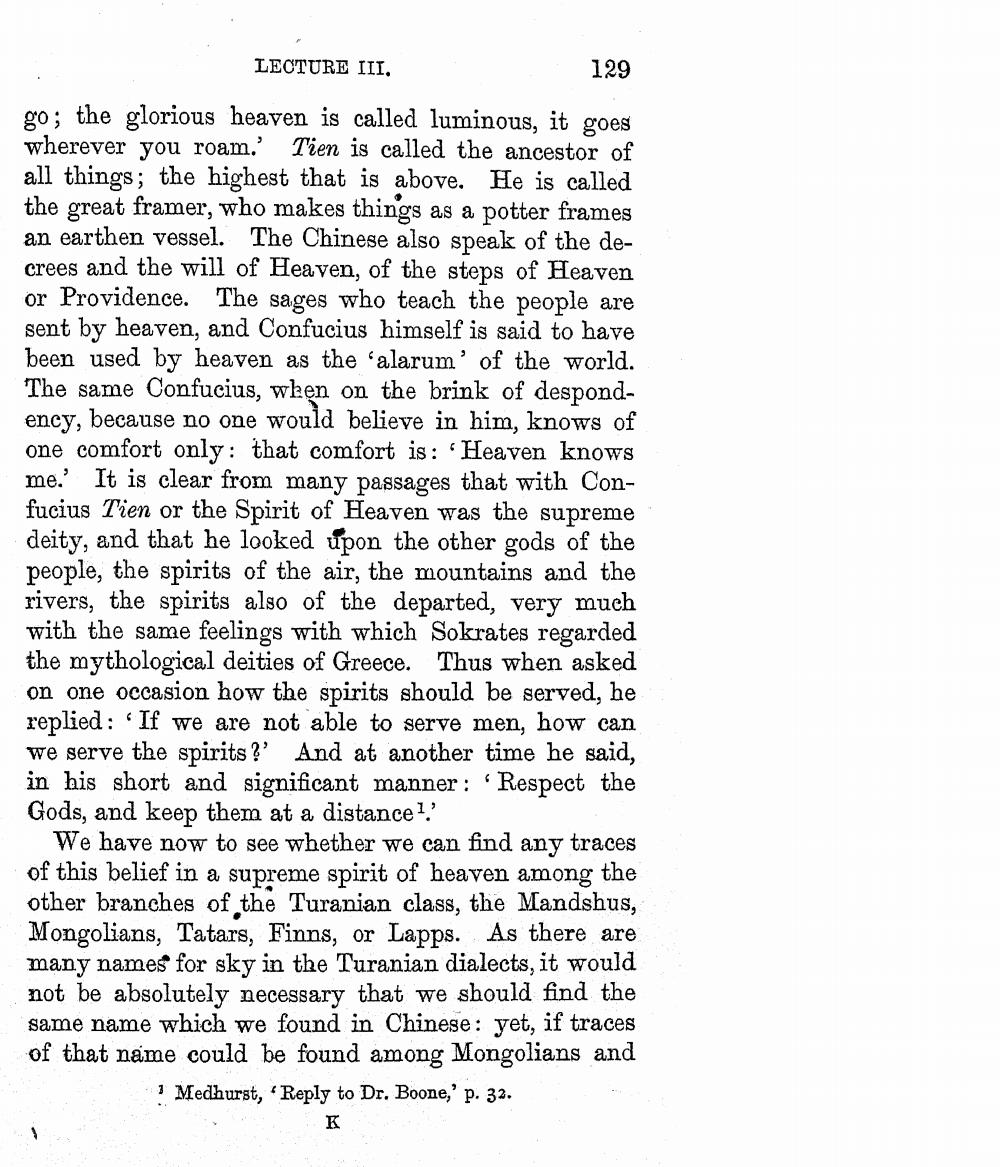________________
LECTURE III.
129
go; the glorious heaven is called luminous, it goes wherever you roam. Tien is called the ancestor of all things; the highest that is above. He is called the great framer, who makes things as a potter frames an earthen vessel. The Chinese also speak of the decrees and the will of Heaven, of the steps of Heaven or Providence. The sages who teach the people are sent by heaven, and Confucius himself is said to have been used by heaven as the 'alarum' of the world. The same Confucius, when on the brink of despondency, because no one would believe in him, knows of one comfort only: that comfort is: 'Heaven knows me. It is clear from many passages that with Confucius Tien or the Spirit of Heaven was the supreme deity, and that he looked upon the other gods of the people, the spirits of the air, the mountains and the rivers, the spirits also of the departed, very much with the same feelings with which Sokrates regarded the mythological deities of Greece. Thus when asked on one occasion how the spirits should be served, he replied: "If we are not able to serve men, how can we serve the spirits ?' And at another time he said, in his short and significant manner : Respect the Gods, and keep them at a distance?
We have now to see whether we can find any traces of this belief in a supreme spirit of heaven among the other branches of the Turanian class, the Mandshus, Mongolians. Tatars. Finns, or Lapps. As there are many names for sky in the Turanian dialects, it would not be absolutely necessary that we should find the same name which we found in Chinese: yet, if traces of that name could be found among Mongolians and
Medhurst, Reply to Dr. Boone,' p. 32.
K




